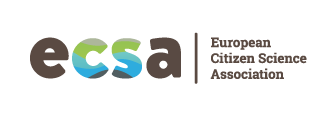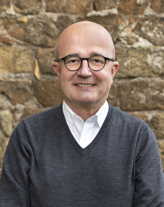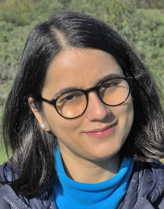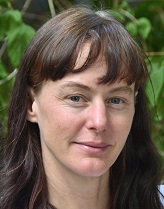Citizen science FAQs
Citizen science, in general, means the participation of the public in science and research. It is an open and inclusive approach, with key characteristics including: (1) citizens are actively involved in research; and (2) there is a genuine science outcome, such as new scientific knowledge, conservation action or policy change.
The term ‘citizen science’, however, is broad and always changing, meaning that it is hard to narrowly define. Many different definitions and criteria have emerged over the years – here are some examples:
A description from the European Commission:
“Citizen Science refers to the general public engagement in scientific research activities when citizens actively contribute to science either with their intellectual effort or surrounding knowledge or with their tools and resources.”
One of the first definitions from Lewenstein in 2004:
- the participation of non-scientists in the process of gathering data according to specific scientific protocols and in the process of using and interpreting that data;
- the engagement of non-scientists in true decision-making on policy issues that have technical or scientific components; and
- the engagement of research scientists in democratic and policy processes.
You can find a table of different definitions here: Table 1 | What Is Citizen Science? The Challenges of Definition | SpringerLink
The ECSA working group ‘Sharing best practice and building capacity’ developed the ‘Ten Principles of Citizen Science’, which are available in thirty-eight languages. Additionally, the citizen science community, including ECSA members, developed the ‘Characteristics of citizen science’.
When running your own citizen science initiative, we recommend that you define what citizen science means for the purposes of your project (keeping the ‘Ten Principles’ in mind), instead of trying to fit into a fixed definition.
Examples of citizen science projects can be found here:
Citizen science helps to make scientific research more democratic, inclusive and accessible. Rather than research projects only being undertaken by academic researchers (perhaps with some citizen participation in the final phases), citizen science strives to involve citizens in many phases of a research project. Citizen science projects also raise awareness on specific relevant topics and issues such as climate change, protecting biodiversity and transforming our urban surroundings.
By involving a broader range of people, citizen science projects benefit from different kinds of knowledge and different sources of information, such as practical and experiential knowledge.
In addition, by involving more people in the scientific process, research can be facilitated on a broader scale and generate far more data. This is essential if we are to tackle some of the biggest societal and environmental challenges that we face, particularly the climate crisis.
As mentioned in the ’10 principles of citizen science’, CS projects have a genuine scientific outcome, and both professional scientists and citizen scientists benefit, e.g. from the publication of research, learning opportunities, addressing local and international issues, and influencing policy. Academic researchers and scientific institutes can gain a better understanding of the areas of society they are working with, and citizens can benefit from increased engagement with the scientific process and satisfaction from contributing to scientific evidence.
Read more:
There are indeed challenges in citizen science, including ensuring data quality, addressing participant diversity, managing project logistics, and maintaining sustained engagement. Nevertheless, several tools and approaches exist to limit or overcome these challenges. These include implementing rigorous data validation and quality control measures, actively promoting diversity and inclusion through outreach and collaboration, streamlining project management with effective tools and workflows, and fostering a sense of community and purpose among participants to sustain their long-term involvement. Despite these hurdles, the potential of citizen science remains significant as it allows for the active engagement of diverse participants, contributes to scientific knowledge, and promotes a sense of community and shared purpose among individuals passionate about contributing to scientific research.
Citizen science projects can involve a range of participants, including civil society, public authorities, academia and industry, working together to contribute to scientific research and progress. Citizens from a diverse demographic and geographical range are at the core of citizen science projects and substantially contribute to the research, for example by gathering and evaluating data and formulating hypotheses and research questions. Anybody can join a citizen science project – people passionate about a certain topic, children and families engaging in their communities, researchers and universities looking to broaden their research.
Whether you are looking to include citizen science in your research or set up a project involving citizen scientists – there are many resources out there to help you get started! Have a look here:
- Guide to Citizen Science
- CitieS Health Citizen Science toolkit
- Citizen science for all – A guide for citizen science practitioners
- EUTOPIA Citizen Science Starter Kit
To find even more information on how to set up a citizen science project and resources to support you, visit the eu-citizen.science platform: https://eu-citizen.science/.
Citizen science can take place in a diverse array of fields, including ecology, astronomy, biology, medicine, computer science, history, sociology – and many more. Historically, citizen science has been mostly applied within the field of natural sciences, but the scope and application of citizen science is constantly expanding. And citizen science can happen at a range of different scales – from local projects to continental and global scales, and from short projects to those that occur over decades!

Haklay, Mazumdar & Wardlaw, 2018, Citizen Science for Observing and Understanding the Earth, Earth Observation, Open Science, and Innovation
The eu-citizen.science platform is an online platform for sharing knowledge, tools, training and resources for citizen science – by the community, for the community. There you can find more than 3500 users, more than 250 citizen science projects and over 250 organisations involved in citizen science, more than 200 resources, dozens of training resources and other platforms, among other things.
The eu-citizen.science platform serves as a knowledge hub, aiming to share knowledge, know-how, and experience between anyone doing or wanting to do citizen science. It is open to anyone interested in citizen science: practitioners, researchers, educators, communities and citizens, policy makers and funding bodies, decision makers, the press, and society as a whole.
On the platform you will find:
- Projects that are engaging the public in research via citizen science activities
- Resources that are useful for citizen science practitioners
- Training resources and materials on citizen science as a practice
- Training modules on citizen science in a wide range of themes
- Organisations that are involved in citizen science projects and research
- Events calendar
- A blog
- Forum for questions, conversations, and collaboration with the rest of the community
Citizen science practitioners can ensure diversity and inclusion by actively engaging with underrepresented communities and individuals, listening to their perspectives, and valuing their contributions. They should promote accessible and inclusive project design, ensuring that participation is open to people of all backgrounds and abilities. Providing training and support for volunteers, including those with varying levels of expertise, can also enhance diversity. Lastly, fostering a welcoming and respectful environment, where diverse voices are acknowledged and appreciated, is crucial for creating an inclusive citizen science community. It is crucial to maintain an open mind and welcome criticism with a positive mindset. Let’s remember that making mistakes is part of the job and always an opportunity to learn something new and improve.
If you would like to be more involved, join the ECSA Empowerment, inclusiveness and equity working group: https://www.ecsa.ngo/working-groups/empowerment-inclusiveness-equity/
ECSA refers to science as a collective human enterprise that encompasses a wide range of activities. We recognise the definition given by the Science Council:
“Science is the pursuit and application of knowledge and understanding of the natural and social world following a systematic methodology based on evidence.”
In this definition, science is not only concerned with knowledge of nature and the universe but also with the social world, and refers to the pursuit of knowledge rather than knowledge itself.
ECSA FAQs
ECSA is a non-profit membership association that advocates for the recognition and implementation of citizen science in Europe. Our vision is a world where people are empowered to make a positive change through science. Our mission is to make science and research open, accessible and valuable for everyone.
As an ECSA member, you are part of the international citizen science community. Expand your network, learn from your peers, and exchange knowledge and ideas through exclusive tools and communication channels. As an ECSA member, you benefit from:
- sharing your news and events through our website and newsletter
- accessing our members-only email list, which provides early notices of jobs, funding opportunities, project requests, etc.
- participating in and voting at our Annual General Meeting
- standing as a candidate for our board
- participating in ECSA working groups
- contributing to ECSA’s open-access documents and publications, such as policy papers and guidelines
- receiving invitations to join European citizen science projects
- adding your logo to the ECSA website (organisations) or your name (individuals).
Find out more: Members – European Citizen Science Association (ECSA)
Members are at the heart of ECSA. ECSA has a diverse network of members, both organisations and individuals, from Europe and beyond. They represent research institutes, museums, students and universities, NGOs and CSOs, the private sector and citizen science groups, among others. They come from a range of different fields, including biology, environmental science, citizens’ groups, do-it-yourself approaches and social sciences, among many others.
ECSA membership is available for individuals and organisations, for both the non-profit & profit sectors. You can complete the membership form here: https://www.ecsa.ngo/become-member/
Anyone interested in joining an ECSA working group should contact the working group chair. For information on how to get in touch with working group chairs, have a look at the ‘How to Get Involved’ section at the bottom of the relevant working group profile page.
Please keep in mind that while participation in ECSA working groups are open to ECSA members and non-members alike, only ECSA members may chair or co-chair a working group. We encourage everyone who has plans to participate in a working group long-term to consider becoming an ECSA member.
If you don’t see a working group that fits your interests or field of study, consider establishing a new working group.
ECSA members are encouraged to propose new working groups that they see as relevant for their field of study. Working groups are officially established at the ECSA general assembly each year, though proposals can be submitted at any point.
An application must be submitted to ECSA headquarters outlining the purpose and objectives of the proposed working group. A proposed working group must have a minimum of five members to start.
For more information about how to start a working group, please read our ‘Guidelines for working groups’.
Application form: https://www.ecsa.ngo/wp-content/uploads/2023/03/Proposing-an-ECSA-Working-Group.docx.pdf













